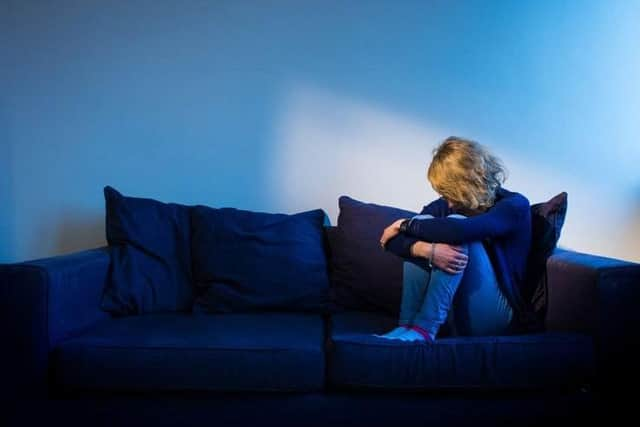Loneliness our focus this Mental Health Awareness Week - Mark Rowland
The experience of the Covid-19 pandemic over the last couple of years brought loneliness closer for millions of us. It was a reminder of our need for each other. Our Mental Health in the
Pandemic study showed that during the lockdowns, the feeling of loneliness was almost three times that of pre-pandemic levels. Connections with loved ones were disrupted, or in some cases broken.
Advertisement
Hide AdAdvertisement
Hide AdLoneliness is a normal part of life and most of us feel lonely at some point. For everyone, experiencing loneliness can gnaw away our sense of self-worth and belonging, however it can become an even greater problem for our mental health when loneliness is a long-term feeling. Almost one in two people said feelings of loneliness have led them to experience low mood – to feel sad and one in four said feelings of loneliness made them feel worried or anxious.


Our research shows that one in four of UK adults (25 per cent) say they have felt lonely some or all of the time over the last month. In Yorkshire and Humberside, this rises to almost one in three (30 per cent). That’s a lot of lonely people who may be at risk of developing mental health problems.
Loneliness is a significant public health issue. It remains one of the key indicators of poor mental health: our own reports have shown that being connected to other people in a way that helps us feel valued is absolutely fundamental to protecting our mental health.
Worryingly, some groups of people are more at risk than others. Almost half (47 per cent) of people aged 18-24 have felt lonely some, or all, of the time over the previous month compared to 25 per cent of the UK population.
Advertisement
Hide AdAdvertisement
Hide AdRhoda, 28, lives with her husband and two young children in Doncaster, talked to us about her experience of loneliness as she integrated into UK society as an asylum seeker in her teenage years.
“Mixing with different people who have no comprehension of your experiences can feel very lonely.”
Libby, 22, from Wakefield, works as a carer in the community and spoke about her own experience of loneliness and what she observed among those she helped through the pandemic. “I know when I talk to people through my work, even if it’s only for half an hour, I can have a big impact. We’ll do a jigsaw together, or have a chat about something we’ve seen on the telly.
Little things matter and something as simple as a conversation can make a big difference.”
Advertisement
Hide AdAdvertisement
Hide AdLoneliness is complex issue. Stereotypes can prevent people from recognising their own loneliness and prolong the time people feel lonely. This in turn increases the mental health risks.
Loneliness also significantly affects older people and people in retirement. They can be without family or have poor social support groups. These are some of the people who most need our help.
Loneliness is often misunderstood. You can be surrounded by people but still feel lonely. It’s a feeling millions of us have had, even when we’re with our friends and family. It is different to being isolated or alone, although these experiences can lead to loneliness.
In fact, half of adults in Yorkshire and Humber (50 per cent) agreed that they can feel lonely, even when with friends. The fact is that millions of us feel lonely but we’re not talking about it. The stigma surrounding loneliness can in itself have a damaging effect. More than one third of those surveyed say they would never admit to being lonely. Sharing our experiences helps to start conversations with others and break the stigma associated with loneliness and mental health.
Advertisement
Hide AdAdvertisement
Hide AdThis Mental Health Awareness Week, everyone is invited to share experiences using #IveBeenThere. As a society we must do better to help people who are lonely. An important step is to address stigma and misconceptions over who experiences loneliness, so that people don’t feel ashamed about how they feel. But we also need the Government to step up the momentum in tackling loneliness across society.
This year, the Foundation is calling on the Government to address chronic underfunding by restoring the Public Health Grant to 2015/16 levels and include commitments on loneliness within its new 10 year Mental Health strategy in particular recognising those groups who are at more risk of loneliness.
Mark Rowland is Chief Executive of the Mental Health Foundation.